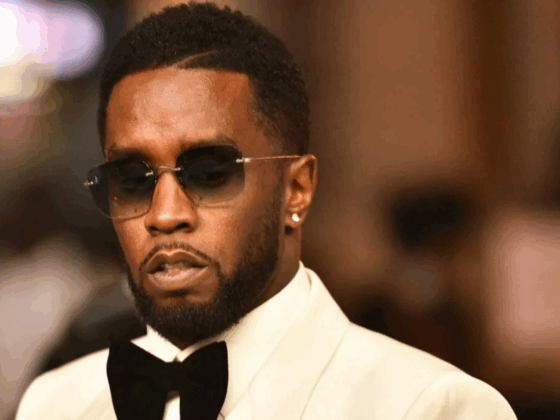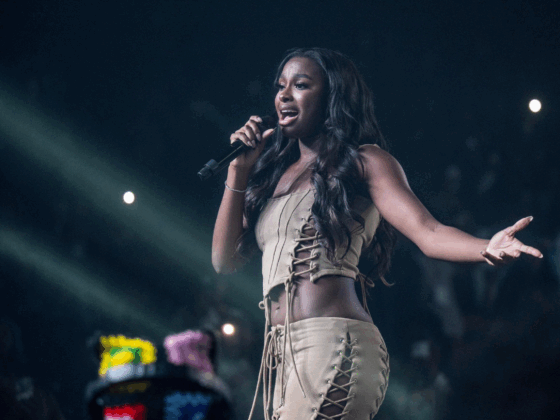
An estimated 100,000 songs are released through Spotify every single day. Among those releases are singles from established, legacy acts, albums from rising stars, and even tracks from NBA stars like Jaylen Brown. While the constant flow of new music may appease some, it poses a major question for emerging artists. How do I stand out in an extremely crowded field of new acts? Some may try to create a social media trend, while others attempt to secure a cosign from a major trend. For NextYoungin, the road to success has been a little more complicated. At first, she rose to prominence with tracks like “3 Musketeers” and “Krispy Kreme.” Both released during the height of the COVID-19 pandemic, “3 Musketeers” and “Krispy Kreme” introduced the world to her and her former collaborator ppcocaine, but it didn’t lay the foundation in exactly the way she wanted. Instead of being known as the featured artist on a pair of viral releases, she wanted the opportunity to show that she could achieve success with guest verse and as a solo act.
In June, NextYoungin jumpstarted the next chapter of her career with the release of her first solo project, Daddy 2 Baddie. Led by the success of “Pop Yo Sh*t Twin,” the seven-track EP showcased the rising artist’s ability to sing and rap while bouncing between soundscapes and genres. As she continues to open up the process of putting together her first solo project on a significant stage, NextYoungin chopped it up with Culture Editor Ryan Shepard.
Ryan Shepard: Let’s jump straight into the album — Daddy 2 Baddie. It’s been out for about a month. How do you feel about the project now as opposed to when it first dropped?
NextYoungin: Whenever I first dropped it, I had a lot of anxious feelings towards it because it was my first project. With a couple of songs on the project, I also branched out into different genres, so I was definitely nervous at first. Now that I’ve settled in, I’ve become very comfortable and confident. I’m like, “Okay, this is the one. I really like this. I’m glad I put this out. It really shows my growth.”
I’m glad that you mentioned that. There are a lot of different sounds on this project. “That Yeah” is very loud and bass-heavy. “OMW” with Kodie Shane has a club music feel to it. What was the most challenging sound or genre you experimented with for this project?
“Different” was the most challenging because I had to show a lot of range with my vocals. I’m not too big of a singer; I usually do more rap stuff, so that was a little different. I’ve always been comfortable with the melodic stuff, but this was very different for me.
As you mentioned, you’re singing a lot more on this project than you have on your previous releases. You mentioned that it was different, but what was the most challenging aspect of leaning more into singing rather than rapping?
I had to become more confident. I also had to become more comfortable pushing my vocals out and using my full voice. That was something that I really had to work on a lot. At first, I would come off shy when recording because I was just nervous about how it would sound. But over time, I got used to pushing my voice out there and using all of my voice.

The title of this project, Daddy 2 Baddie, highlights the differences between your two personas, “Baddie Kane” and “Daddy Kane.” When you look at those two personalities, is it easier to express yourself musically as one persona rather than the other?
It’s very equal. As long as I’m in that state of mind, it comes out naturally. However, it’s tough to make a Baddie Kane song if I’m in my alter ego of Daddy Kane.
From the fan’s perspective, do you feel like they gravitate more to one persona than the another?
It’s pretty even. There are some fans who like Daddy Kane more, and there are some fans who like Baddie Kane more. Overall, I see that they like both equally. You know what I’m saying? But there are a few times when I’ll get a few people who will say, “Oh, we miss Daddy Kane! When is Daddy Kane coming back? Or when is Baddie Kane coming back?” It’s just really mixed up.
Shifting gears, I wanted to ask you about leading this project and roll out as a solo artist. Coming up, many of your biggest songs were always with someone else. However, “Pop You Sh*t Twin” has become your third most-played single, according to Spotify. How does it feel to have a breakout single that is entirely led by you as opposed to one when you’re working with someone else?
It was definitely a good feeling because I had heard the whispers of like, “You wouldn’t be where you are if you wouldn’t have done this or if you wouldn’t have done that.” Being that I was able to push a song out there that got the numbers it did and went viral off of a trend that I started alone, “Pop Your Sh*t Twin” holds a lot of weight with me. It was a really good feeling.

Going along that line of discussion, your first viral hit, “Three Musketeers,” peaked during the height of the COVID-19 pandemic. The world was shut down for two or three years while you were seeing its success, and I’m sure a lot of people were telling you to put out a project while it was taking off. Why did you feel like now is the right time to put Daddy 2 Baddie out?
Right now, I’m growing into my new self. I’m gaining my own individuality after being attached to other people in the past. This is my story. This is who I am. I’m not just somebody that did a song with this person or somebody that was just around this person.
When I was I watching your interview with Jay Hill a few days ago, I had the opportunity to learn a little bit more about your backstory. More specifically, you mentioned that you had started making music as early as 2019. Five years later, your debut album is out. With all that you’ve learned in that time, what advice would you give yourself from 2019 about life and the music industry?
Do your research on what you’re getting involved with. Coming into the music industry, there were a lot of things that I didn’t know. I just didn’t have the knowledge or guidance I needed. I didn’t know anything. If I knew what I know now, I would have done a lot of things differently as far as contracts, lawyers, business, etc., are concerned.
When I first heard the intro, “Standing On Business,” it felt like you were ending a chapter of your career and beginning a new one. Now that you’ve put out Daddy 2 Baddie and arrived at this point in your career, how do you define success? Is there a certain number of plays you want it to get or are there certain tours you want to get on now this project is out?
I want to do everything an artist would normally do after a project. Of course, I want to tour, do all the media stuff, meet some of my followers, and do things like that. I have grown with this project and am happy with where I am right now.






